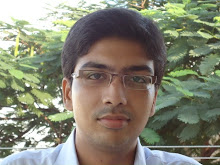All next week, Microsoft CEO Steve Ballmer will be in Central and Eastern Europe to meet with government leaders, partners and customers, as well as Microsoft staff, to discuss how technology can continue to make a positive impact on people's lives. The EMEA Press Centre caught up with him as he prepares for his visit to find out more about the trip.
BUDAPEST, Hungary — 16 May 2008 — All next week, Microsoft CEO Steve Ballmer will be in Central and Eastern Europe to meet with government leaders, partners and customers, as well as Microsoft staff, to discuss how technology can continue to make a positive impact on people's lives. Click here for an interactive map of his activities throughout the week.
The EMEA Press Centre caught up with Ballmer as he prepares for his visit to find out more about the trip.
EMEA Press Centre: Can you tell us more about your trip to Eastern Europe?
Steve Ballmer: One of the great perks of my job as CEO of Microsoft is the opportunity to travel extensively and see firsthand how quickly the world is changing. Next week I am travelling to five countries in Eastern Europe — Hungary, the Czech Republic, Slovakia, Ukraine and Russia. While I'm there, I'm looking forward to meeting with government leaders, customers and partners, and leaders of some of the organizations we work with to promote access to digital technology and relevant IT skills and training. My goal is to discuss ways that Microsoft can support efforts to help people use technology to improve their lives and create sustainable growth and new economic opportunities. The trip is also a chance to catch up on the recent changes in the area and to experience the enormous progress the entire region has enjoyed in recent years.
EPC: How important is the CEE region for Microsoft?
Ballmer: While countries like China and India tend to get most of the press coverage as examples of rapid growth, the fact is that Central and Eastern Europe is the world's fastest-growing region and most economists anticipate that this will be the case for the next few years, at least. Right now, it is Microsoft's fastest-growing market, as well. Today, we have 23 subsidiary offices across the region, and we employ around 2,000 people. We operate significant development, technical support and innovation centres in cities such as Bucharest, Belgrade and Prague, and we continue to invest in the region because we are seeing a lot of growth and opportunity.
EPC: And finally, what is driving that opportunity?
Ballmer: A number of things — talent is first and foremost. Literacy rates are nearly 100 per cent across the region and the area's technical schools and universities are world-class. Increasingly, governments are also encouraging investment from overseas by creating attractive business environments. This concentration of talent combined with the growing recognition of the value of innovation and the opportunity to tap into the region's promising markets has made Central and Eastern Europe one of the world's most exciting areas for investment.
